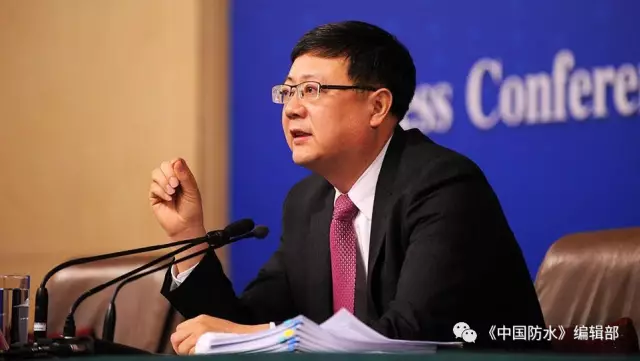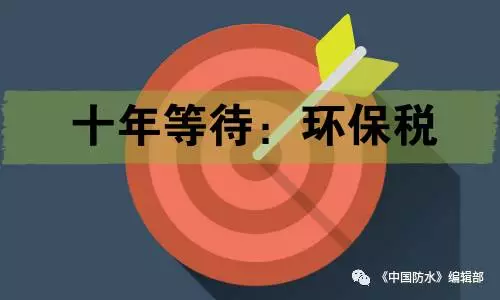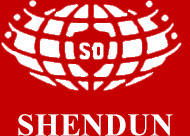
Environmental protection who came! Implementation on January 1 next year
Time:2018-11-27
Environmental taxes are coming! Implementation on January 1 next yearSource: China Waterproof Network
Recently, the Ministry of Finance, the State Administration of Taxation, and the Ministry of Environmental Protection jointly issued a notice requiring all localities to fully prepare for the implementation of the environmental protection tax law.
And this also means that the environmental protection tax collection and management preparations for the full opening. With regard to environmental protection taxes, there are two important points in time:
On December 25, 2016, the Standing Committee of the Twelfth National People's Congress deliberated and passed the the People's Republic of China Environmental Protection Tax Law (hereinafter referred to as the "Tax Law"); the tax law is clear and will come into force on January 1, 2018.

The "Environmental Protection Tax Law" is the first tax law formulated since the Third Plenary Session of the Eighteenth Central Committee of the Communist Party of China. It carries the important task of implementing the concept of green development and promoting ecological environmental protection. It is highly concerned by all sectors of society. According to the person in charge of the Department of Laws and Regulations of the Ministry of Environmental Protection, the reform of environmental protection taxes through sewage charges will help increase the rigidity of law enforcement, reduce local government intervention, and internalize environmental costs. Environmental protection tax is levied on the basis of emissions, with more emissions and less emissions, which is conducive to promoting enterprises to improve their environmental protection level and reduce pollutant emissions. The environmental protection tax adopts the collection and management mode of "enterprise declaration, tax collection, environmental protection cooperation and information sharing", which is conducive to enterprises to assume the main responsibility, departments to form a joint regulatory force, and promote the smooth transition of sewage charges to environmental protection tax.
It is understood that at the end of June, the State Administration of Taxation and the Ministry of Environmental Protection have signed the "Memorandum of Cooperation Mechanism for Environmental Protection Tax Collection and Management," and established a cooperation mechanism for collection and management at the ministerial level, setting an example for various localities to strengthen departmental cooperation. In late July, the three departments of finance, taxation, and environmental protection have completed the public solicitation of opinions on the implementation regulations of the Environmental Protection Tax Law.
The joint issuance of the notice by the three departments will not only clarify the requirements for local collection and management preparations, but will also further consolidate the results of the cooperation mechanism and form a good working situation of internal and external joint deployment and coordinated advancement.

The notice clarifies the five key tasks that need to be done before the environmental protection tax is introduced:
1. strengthen organizational leadership and establish a multi-sectoral coordination mechanism under the leadership of local people's governments.
2. implement the matters authorized by the tax law, determine the specific applicable tax amount of taxable air pollutants and water pollutants in the region, as well as the sampling measurement and approved collection method of taxable pollutant emissions.
3. find out the base of tax sources, timely hand over archives and materials, and step up the establishment of a database of basic tax sources.
4. do a good job in the development and construction of information systems, tax, environmental protection departments to achieve tax-related information data exchange and sharing.
5. do a good job in tax law publicity and tax training and guidance, so that grass-roots tax personnel familiar with the tax law, understand the policy, grasp the requirements, so that taxpayers can declare, will declare.
In the next step, the three departments will also speed up the legislation of the implementation regulations of the environmental protection tax law, speed up the formulation of supporting provisions and technical specifications of the environmental protection tax law, and actively and steadily make preparations for the implementation of the environmental protection tax law.
Which businesses pay taxes?
The tax law makes it clear that "enterprises, institutions and other producers and operators that directly discharge taxable pollutants into the environment" need to pay environmental protection tax, while taxable pollutants include four types of pollutants, such as air, water, solids and noise.
There are two situations that do not belong to the direct discharge of taxable pollutants into the environment, such as the discharge of pollutants into a centralized sewage treatment plant or a centralized domestic waste treatment plant; or the storage or disposal of solid waste in facilities and places that meet environmental protection standards, no environmental protection tax is levied. Therefore, those who have paid sewage treatment fees and solid waste disposal fees to sewage treatment plants or solid waste treatment and disposal units in accordance with the regulations are not within the scope of collection.
The tax law makes it clear that "enterprises, institutions and other producers and operators that directly discharge taxable pollutants into the environment" need to pay environmental protection tax, while taxable pollutants include four types of pollutants, such as air, water, solids and noise.
There are two situations that do not belong to the direct discharge of taxable pollutants into the environment, such as the discharge of pollutants into a centralized sewage treatment plant or a centralized domestic waste treatment plant; or the storage or disposal of solid waste in facilities and places that meet environmental protection standards, no environmental protection tax is levied. Therefore, those who have paid sewage treatment fees and solid waste disposal fees to sewage treatment plants or solid waste treatment and disposal units in accordance with the regulations are not within the scope of collection.

How much to pay?
The discharge of air and water pollutants is determined according to the equivalent number of pollutants discharged, the solid pollutants are determined according to the discharge amount, and the noise is determined according to the decibels of the prescribed standard.
The range of air pollutant tax is 1.2 yuan ~ 12 yuan per pollution equivalent. The range of water pollutant tax is 1.4 yuan ~ 14 yuan per pollution equivalent. According to different types of solid waste, the tax amount is 5 yuan ~ 1000 yuan per ton. According to the number of decibels exceeding the standard for noise, the tax amount is 350 yuan ~ 11200 yuan per month.
The taxable amount of a pollutant is the number of pollution equivalents multiplied by the specific applicable tax amount.
How do companies pay environmental taxes?
The tax law stipulates that taxpayers shall declare and pay environmental protection tax to the competent tax authorities in the place where taxable pollutants are discharged.
The environmental tax is calculated on a monthly basis and is declared and paid on a quarterly basis. If the payment cannot be calculated according to a fixed period of time, the payment can be declared on a per-time basis.
According to the tax law, taxpayers shall, within 15 days from the end of the quarter, file tax returns and pay taxes with the competent tax authorities.
When a taxpayer declares and pays, it shall submit to the tax authorities the types and quantities of taxable pollutants discharged, the concentration values of air pollutants and water pollutants, and other tax information required by the tax authorities to be submitted by the taxpayer according to actual needs.
Will the cost of the business increase?
In fact, the tax law clearly states that "from the date of implementation of this law, environmental protection tax shall be levied in accordance with the provisions of this law, and sewage charges shall no longer be levied." The introduction of environmental protection tax has replaced the sewage charging system that has been implemented for more than ten years. Therefore, the sewage charges that polluters had to pay before are now replaced by environmental protection tax. The environmental protection tax is completely consistent with the emission pollutants covered by the existing sewage charge system, that is, four types of pollutants such as air, water, solids, and noise. At the same time, from the current taxation intensity, there is not much difference from the sewage charge.
The difference is that environmental protection taxes are charged differently according to the degree of pollution emitted by enterprises. Enterprises with more pollution emissions pay more taxes, and vice versa. The tax code provides for two tax breaks. If the taxpayer's sewage concentration value is lower than the prescribed standard of 30%, the tax shall be reduced by 75%; If the sewage concentration is lower than 50% of the standard, the tax shall be reduced by 50%.
The fundamental purpose of environmental protection tax is not to levy taxes, but to promote the transformation and upgrading of enterprises through the incentive mechanism of more rows and more charges, less rows and less charges, and to reduce pollution emissions through technical means, which is not only to protect the environment, but also a way for the sustainable and healthy development of enterprises.


